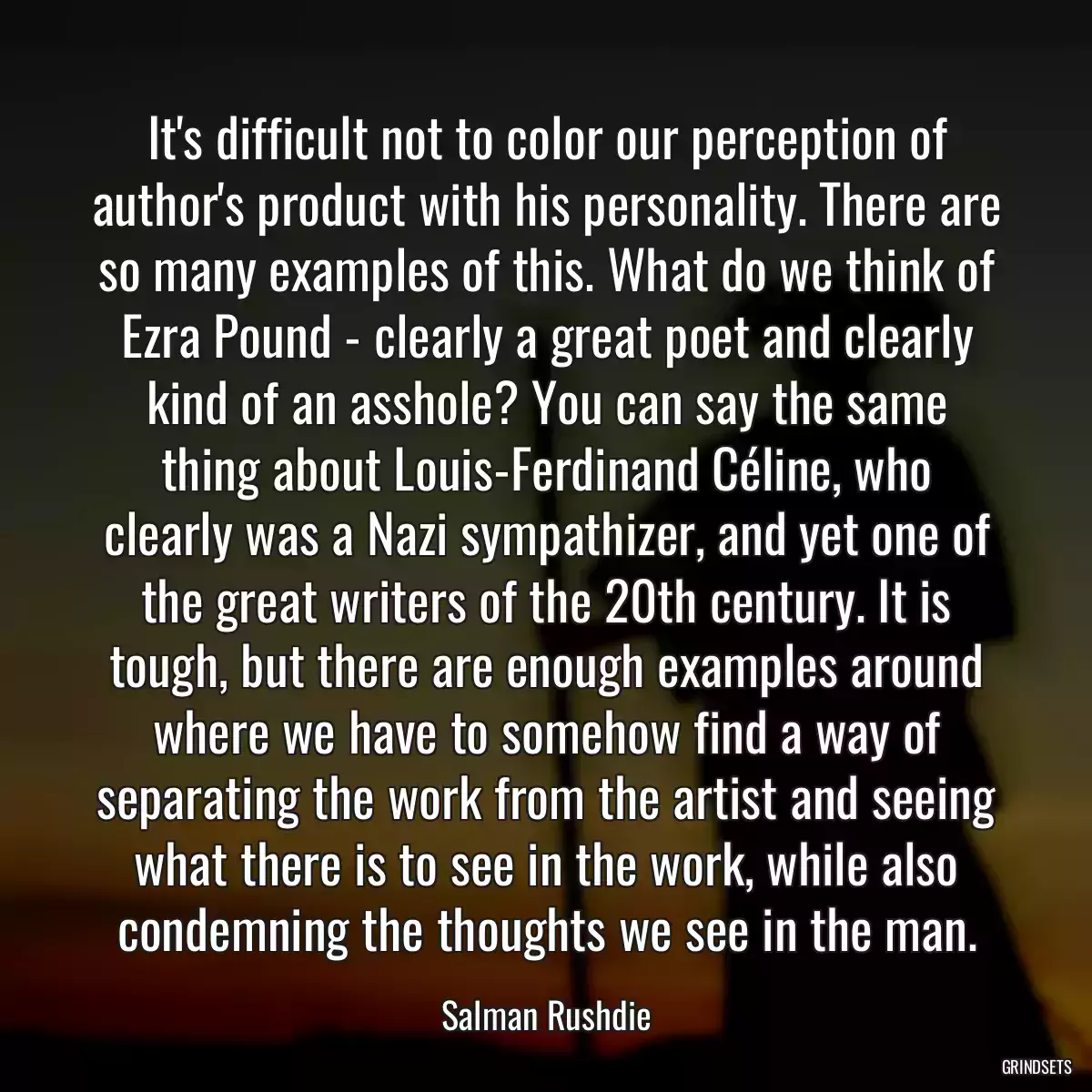
It's difficult not to color our perception of author's product with his personality. There are so many examples of this. What do we think of Ezra Pound - clearly a great poet and clearly kind of an asshole? You can say the same thing about Louis-Ferdinand Céline, who clearly was a Nazi sympathizer, and yet one of the great writers of the 20th century. It is tough, but there are enough examples around where we have to somehow find a way of separating the work from the artist and seeing what there is to see in the work, while also condemning the thoughts we see in the man.